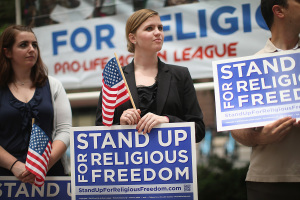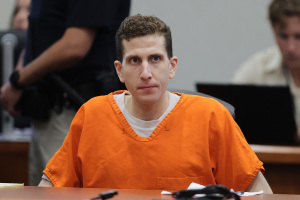The problem of moral evil: Calvinism vs. Molinism

I finally got a chance to watch the Calvinism vs. Molinism debate between Dr. James White and Dr. William Lane Craig where each tackled the problem of moral evil from their theological position. Moderated by Justin Brierley during his Unbelievable broadcast, the discussion was a good opportunity to hear points of view straight from the horse’s mouth on a difficult subject.
Let me first say I have benefited greatly from the teaching and writings of both men. You’ll be hard-pressed to find a better foundational apologetics book than Craig’s On Guard, and his podcast is something I listen to each Saturday at the gym.
Where understanding the sovereignty of God, election, and human free will is concerned, I think White’s book, The Potter’s Freedom, is one of the best and most approachable works available, and his webcast, The Dividing Line, is a great resource for those wanting to wade deep into theological waters.
A quick summary
As to each of the men’s positions, White is a reformed theologian (i.e., a Calvinist) while Craig espouses Molinism. Both affirmed the Westminster Confession of Faith’s stand on God and evil (section 5.4).
White briefly explained the reformed stance of God being the One who has determined the very fabric of time and events, with all things having meaning, including evil. God is working everything “according to His purpose” and “works all things after the counsel of His will” (including evil, Eph. 1:11) bringing glory to Himself.
Craig summarized Molinism as agreeing that everything occurs by God’s decree. However, by God’s “middle knowledge,” held logically prior to His divine decree, He brings about a world where He takes into account how people would freely choose under various circumstances in which they might be placed. Molinists believe this brings accountability to the creature while still allowing God’s will to ultimately be accomplished.
With respect to critiques of each other, White argued that there is no biblical evidence for Molinism and that it appeals to external philosophy where none is needed, hamstringing God in the process of being omnipotently sovereign over His creation. Craig, on the other hand, claimed that Calvinism makes God the author of evil and ultimately the One putting evil in the hearts of His creation to do wrong.
God the author of evil?
There were a couple of assertions and points raised during the debate that I’d like to address.
The first is the claim that reformed theology makes God the author of evil. I'd disagree and say, like White, most Calvinists adhere to the Westminster Confession’s declaration. As to what “author of sin” means and does not mean, I think Jonathan Edwards does a good job of representing the reformed position when he says:
“If by the author of sin, be meant the sinner, the agent, or actor of sin, or the doer of a wicked thing…I utterly deny God to be the author of sin. But if, by the author of sin, is meant the permitter, or not a hinderer of sin; and, at the same time, a disposer of the state of events, in such a manner, for wise, holy, and most excellent ends and purposes…I do not deny that God is the author of sin (though I dislike and reject the phrase, as that which by use and custom is apt to carry another sense).”
God’s restraint of evil
This leads to the second point White made multiple times during the discussion that seemed to be ignored, which is the biblical evidence of God both restraining and permitting evil. As White pointed out, Molinism contends that God created a world in which people carry out their actions freely, unhindered by their Creator.
Yet, the Bible contains more than a few examples of God directly intervening to restrain the evil actions of others (e.g., Gen 20:6; 1 Sam. 25:26; 2 Thess. 2:6-7; Rev. 9:13-15) or removing His restraint in order for evil to occur. God’s relationship to evil in this regard is described by Edwards as follows: “There is a vast difference between the sun’s being the cause of the lightsomeness and warmth of the atmosphere…and it being the occasion of darkness and frost…[by] its withdrawment. It would be strange to argue “because it is always dark when the sun is gone, and never dark when the sun is present, that therefore all darkness is from the sun.”
The book of Job serves as one biblical example of Edward’s illustration. Satan complains to God that He has “made a hedge about him [Job] and his house and all that he has, on every side” (1:10). Once God removes that protection, calamity falls on Job.
And who does God Himself implicate for Jobs' woes? “The Lord said to Satan, “Have you considered My servant Job…he still holds fast his integrity, although you incited Me against him to ruin him without cause. Then all his brothers and all his sisters and all who had known him before came to him, and they ate bread with him in his house; and they consoled him and comforted him for all the adversities that the Lord had brought on him” (Job 2:3; 42:11, my emphasis).
This is in keeping with other biblical passages of God allowing or directing evil, as His plan dictates vs. arranging outcomes based on human freedom (e.g., “If a calamity occurs in a city has not the Lord done it?” (Amos 3:6)).
A central disagreement over human free will
Finally, as it relates to human free will’s involvement in evil, the Molinist and Calvinist positions differ, in my opinion, by a wide degree. Although not succinctly captured in this debate, Craig’s position on original sin and its effect on human freedom is found here, here, and here, and a brief summary is also available in a recent podcast, where he says:
“I would say that sin affects every human being that lives. It infects our societal institutions. We live in a corrupt and evil world so that people naturally born into such a world adopt the behavior patterns of this corrupted world and they become sinful themselves. So we don't need to think that little infants are stained with the guilt of Adam in order to believe that children, as they grow older, do become sinful in virtue of the influences upon them.”
To me, this sounds somewhat like the teaching of philosopher Jean-Jacques Rousseau who blamed society for people’s evil vs. people being inherently evil and thus producing a corrupt society.
The Calvinist view of human free will as it relates to moral evil is much different. Reformed theologians hold that Adam, after the Fall, had children “in his own likeness, according to his image” (Gen. 5:3) vs Adam’s original, uncorrupted state, which is why we find statements like David’s in Scripture: “Behold, I was brought forth in iniquity, and in sin my mother conceived me” (Ps. 51:5).
This being the case we are “by nature children of wrath” (Eph. 2:3) and “dead in trespasses and sins” (Eph. 2:1) going “estranged from the womb” (Ps. 58:3). This ties into the problem of evil and God’s sovereignty as He has “made everything for its own purpose, even the wicked for the day of evil” (Ps. 16:4).
As John Wesley (not a Calvinist) said, “Such is the freedom of the will; free only to evil; free to drink iniquity like water; to wander farther and farther from the living God, and do more despite the Spirit of grace!”
All this contrasts with Molinism’s position of human beings being ineradicably free in an indeterministic sense (i.e., having libertarian freedom) where evil is concerned. Further, Molinism makes it impossible for God to exercise providential control over His creation because humanity is free to resist His decree. He can only bring to pass the actions of completely free people via His middle knowledge of what they would freely do if .
For these reasons and others, I personally find myself adhering to the reformed stance on the problem of moral evil vs. the Molinist’s. I think R.C. Sproul sums things up well when he says, “God can ordain evil and not be guilty of sin. He has a holy intent in all He ordains. Evil is evil, but the Lord never has an evil intent, and He never does evil Himself. He works through the evil intents of others to fulfill His good intent.”
Robin Schumacher is an accomplished software executive and Christian apologist who has written many articles, authored and contributed to several Christian books, appeared on nationally syndicated radio programs, and presented at apologetic events. He holds a BS in Business, Master's in Christian apologetics and a Ph.D. in New Testament. His latest book is, A Confident Faith: Winning people to Christ with the apologetics of the Apostle Paul.





























